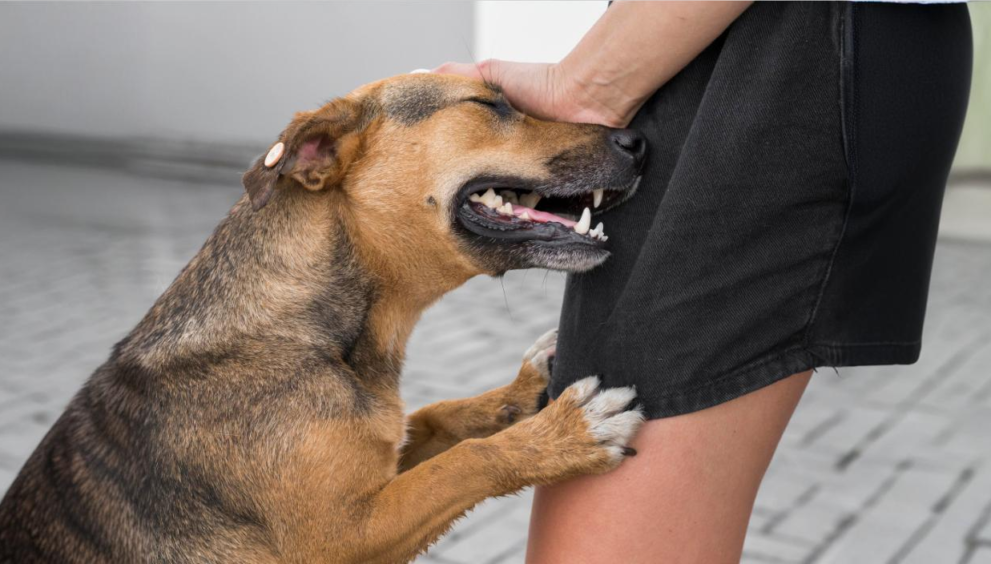FACT CHECK: Can fasting for 3 days shield you from rabies after a dog bite?
Rabies is a deadly virus, and relying on fasting after a dog bite instead of receiving a vaccine puts health at serious risk
Author
Author
- admin / 1 year

- 0
- 4 min read

Author
CLAIM:
Fasting for three days after a dog bite enables the body to produce antibodies against rabies.
FACT:
A 3-day fast cannot protect against rabies; only timely vaccination can prevent the deadly disease.
If a dog bites you, you shouldn’t go for any vaccine and instead keep a fast for three days. The body will naturally produce antibodies against rabies, claims a Youtube video.
“There are no antibodies in any vaccine in the world. It is your body that produces antibodies. Vaccines contain the same virus that the dog transfers during the bite,” says the alleged health expert interviewed by two influencers
“If a dog bites you, it doesn’t matter whether the dog has rabies or not. This whole vaccine business is driven by fear. Instead of taking a vaccine, fast for three days. Consume fruits, coconut water, juices, turmeric water, curry leaves, giloy decoction, and salads. Avoid solid food completely during this time. Your body will naturally create antibodies,” he adds.
What is the fact?
Doctors say fasting is no treatment for rabies.
When contacted, Dr Salim Khan, Head of Department Community Medicine Government Medical College Srinagar termed the claim that fasting can be a cure for dog bite as “irrational management.”
“There’s no scientific reasoning for such irrational management,” Dr Khan told First Check. “It’s essential to follow the standard vaccination regimen immediately after any animal exposure including dog bites.”
The Indian Academy of Pediatrics guidelines also do not mention fasting as treatment for animal bite.
“96% of the rabies reported are from dogs in our country. Even though chances of getting rabies from a bite of a rabid dog is less than 50 percent, it is 100 percent lethal,” the guidelines reveal.
“In every case of animal bite, whether it is provoked or not, one should wash with soap and running water for 10–15 minutes which will remove 90% of the virus. Wounds should be cleaned thoroughly with povidone–iodine, if available,” read the guidelines.
The guidelines prescribe four doses of vaccination with anti-rabies vaccine on day 0 (day of bite), Day 3, Day 7 and between Day 14–28.
The vaccination is available at all government hospitals and private hospitals.
“In case of “category 3” bite which is any bite with bleeding, rabies immunoglobulin (RIG)/monoclonal antibodies need to be infiltrated into the wound site at the earliest. This is maximally infiltrated locally around the wound. If the site of bite is such that infiltration is not possible, then RIG/monoclonal antibody may be given at a nearest site, where injecting it is possible,” say the guidelines.
Rabies immune globulin (RIG) is a blood product that contains antibodies to the rabies virus and is used to prevent rabies infection after exposure to the virus. Monoclonal antibodies (mAbs) are laboratory-produced molecules that can be used to treat rabies
The virus, according to guidelines, usually multiplies locally in the muscle fibers and then enters the peripheral nerves and brain. By local injection with RIG/monoclonal antibody, which has an immediate action, this spread is prevented.
The guidelines caution against application of turmeric, chili powder, lime, soil, salt, plant juice or oil over the wound from any animal bite. Covering the wound with dressings or bandages is also discouraged.
“Suturing, which facilitates further inoculation of rabies virus, should be avoided but, if necessary, can put a loose suture for approximation after giving the rabies immunoglobulin (RIG) With proper wound management itself, 90% of the virus can be eliminated,” say the guidelines.
Also read: India reports 9.1 million animal bites every year – First Check









